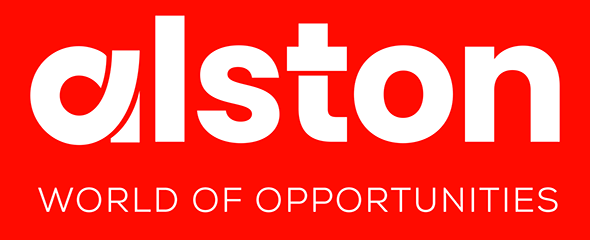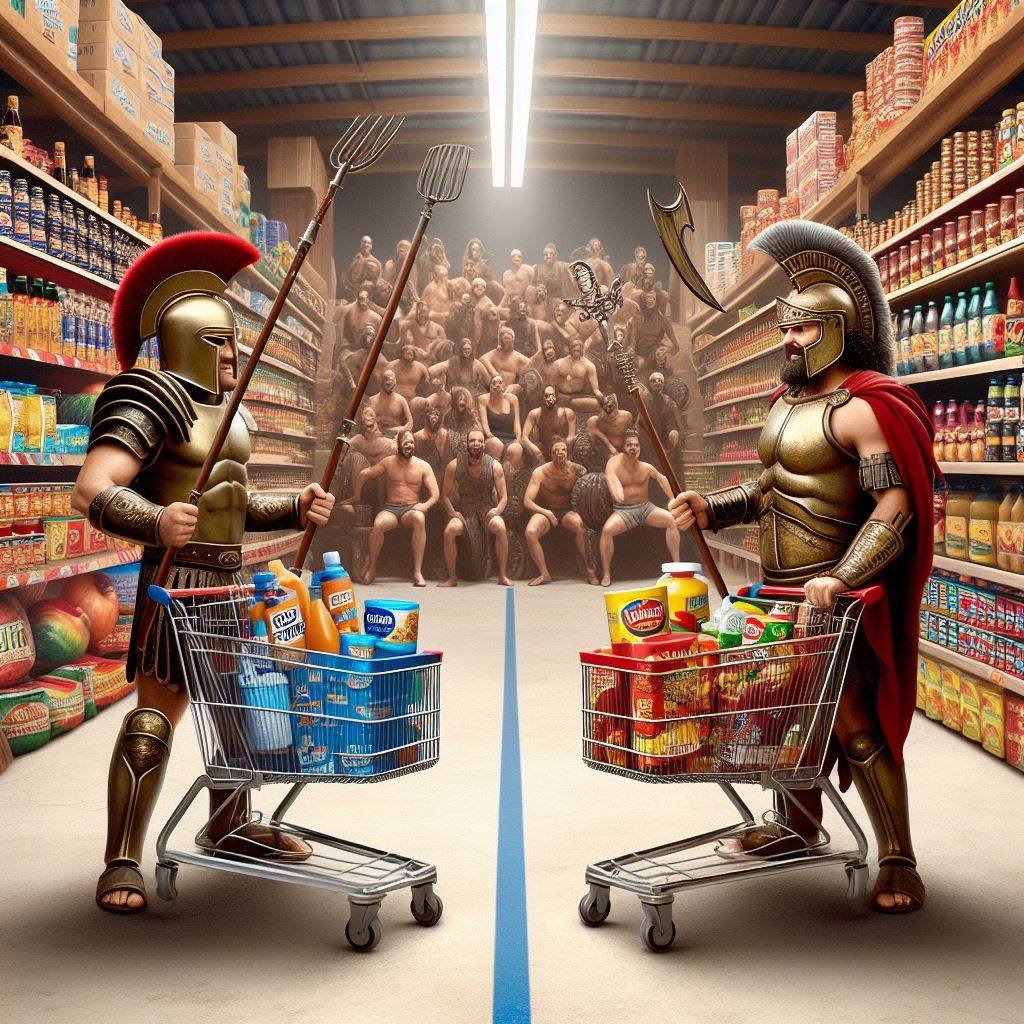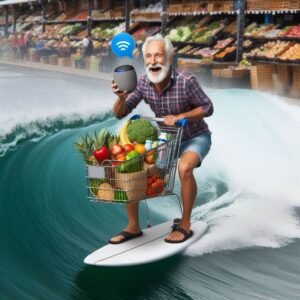Rising Competition from Private Labels:
When Supermarket Shelves Become a Hunger Games Arena
Greetings, fellow FMCG gladiators!
Remember the good ol’ days when a known brand was the undisputed champion of the supermarket aisle? Well, dust off your metaphorical tridents, because private labels (PL) are rising like genetically-modified bread, threatening to steal the brands’ market share faster than you can say “discount kale chips.”
Don’t panic, though! This isn’t the FMCG apocalypse (yet).
But it is a serious challenge. Studies show that PL’s are accounted for 38.5 % (or 340 billion euros) in 2023.
Their siren song of lower prices luring budget-conscious shoppers away from brand loyalty. But fear not, for within every challenge lies an opportunity, and this one is ripe for Disruptive Innovation, Sustainability and Pricing.
Let’s face the facts:
- Private labels are lean, mean, cost-cutting machines.
They piggyback on established supermarket infrastructure, often offering similar products at lower prices. Think of them as the Katniss Everdeens of the FMCG world – resourceful, adaptable, and ready to shake things up. - But wait, there’s more! Not all private labels are created equal.
Some boast surprisingly good quality, making the choice even more agonizing for price-conscious consumers. It’s like choosing between a budget-friendly protein bar and a suspiciously delicious mystery meat burger – both might fill you up, but only one leaves you questioning your life choices.
So, how do the valiant FMCG brands survive this supermarket Hunger Games?
1. Unleash Your Inner Innovation Unicorn:
Ditch the “me-too” mentality and embrace radical innovation. Think limited-edition flavors inspired by dragonfruit and unicorn tears, or eco-friendly packaging that sprouts wildflowers when you plant it. Remember, private labels can copy, but they can’t replicate creativity and audacity.
2. Quality is Your Secret Weapon (and Maybe a Bit of Storytelling):
Don’t just shout about your premium ingredients – tell their story.
Show consumers where your ethically-sourced cocoa beans come from, or how your sustainable farming practices help baby pandas (because who doesn’t love baby pandas?).
Make them feel good about choosing your brand, not just about saving a few pennies.
3. Get Personal, Not Generic:
Embrace the power of data and personalization.
Offer subscription boxes tailored to individual preferences, or use AI-powered chatbots to recommend products based on past purchases and dietary needs. Remember, in the Hunger Games of FMCG, personalization is your ultimate weapon.
But here’s the real twist, folks, AI is our secret sauce in this supermarket showdown. Here are some powerful tools to consider:
- IBM Watson Trend Analytics: Analyze social media trends and competitor activity to predict upcoming private label innovations, allowing you to stay one step ahead. (IBM Watson Discovery)
- Google Cloud Vertex AI: Forecast demand for specific products and regions, helping you optimize production and avoid costly over-stocking or under-stocking. (Vertex AI)
- Microsoft Cloud OpenAI Service: Gain deep insights into customer preferences and behaviours, allowing you to develop targeted marketing campaigns and personalized product offerings that private labels simply can’t match. (Microsoft Cloud for Retail)
So, the question remains, fellow FMCG warriors:
Are you ready to step into the supermarket arena and fight for your brand dominance?
Share your wildest innovation ideas, your most epic marketing strategies, and your craziest private label-crushing tactics in the comments below! Let’s turn this challenge into a triumphant victory lap for innovation, quality, and maybe even a sprinkle of unicorn magic!
Remember, in the FMCG Hunger Games, only the most creative, adaptable, and data-driven brands survive.
Are you ready to be the Katniss Everdeen of your market?
#FMCG #PrivateLabels #Innovation #MarketingMagic #GrowthMindset #SupermarketShowdown #UnicornTearsOptional



